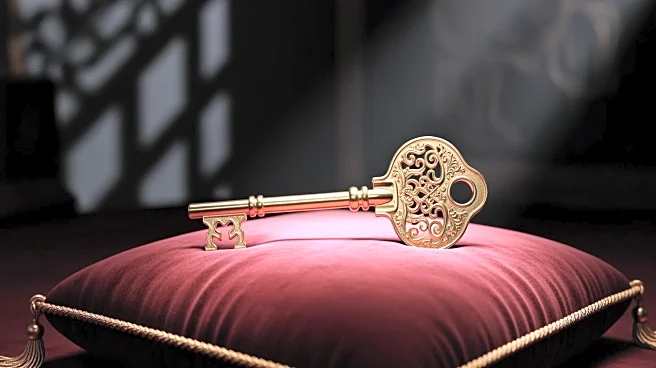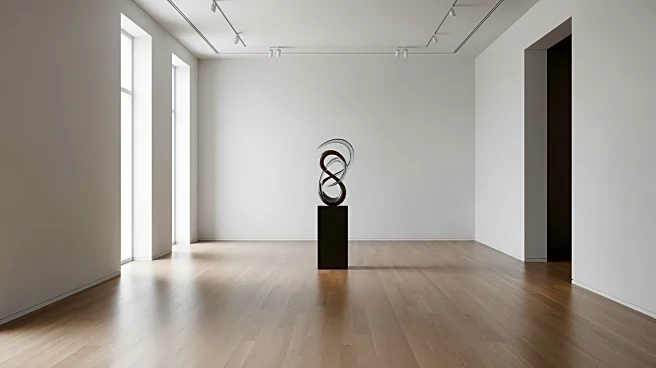What's Happening?
The Louvre's director, Laurence des Cars, is facing scrutiny following a report by Pierre Moscovici, chairman of the Cour des comptes, which labels the museum's €666 million plan for a new entrance and
subterranean complex as 'financially unsound.' The report emphasizes the need for prioritizing security upgrades, especially after a recent heist involving the theft of French crown jewels. The audit highlights significant delays in the deployment of security equipment, with only €3 million of the planned €83 million budget for a ten-year infrastructure upgrade being utilized. The report criticizes the financial feasibility of the new entrance plan, which has already exceeded its initial budget by 45%, and urges the museum to focus on a €450 million infrastructure plan announced by President Emmanuel Macron.
Why It's Important?
The report's findings have significant implications for the Louvre, one of the world's most visited museums. The emphasis on security comes in the wake of a high-profile theft, underscoring vulnerabilities that could deter future visitors and impact the museum's reputation. Financially, the criticism of the entrance plan's budget overrun raises concerns about resource allocation and fiscal responsibility. The museum's response, which describes the report as 'unbalanced,' suggests a potential conflict between long-term visionary projects and immediate security needs. This situation highlights the broader challenge of balancing cultural heritage preservation with modern security demands.
What's Next?
The Louvre is expected to reassess its priorities in light of the audit's recommendations. The museum may need to accelerate the implementation of the infrastructure plan to address security concerns. Stakeholders, including the French government and cultural institutions, will likely monitor the museum's response closely. The outcome could influence future funding and project approvals, as well as impact the museum's leadership and strategic direction. The situation also presents an opportunity for the Louvre to demonstrate its commitment to safeguarding its collections while pursuing ambitious development plans.
Beyond the Headlines
The report raises broader questions about the role of cultural institutions in balancing tradition with innovation. The Louvre's situation reflects a common challenge faced by museums worldwide: how to modernize facilities and enhance visitor experiences without compromising security or financial stability. The debate over the entrance plan also touches on cultural policy and the allocation of public funds, highlighting the need for transparency and accountability in managing national treasures. This case may prompt other museums to reevaluate their own security measures and project planning processes.









